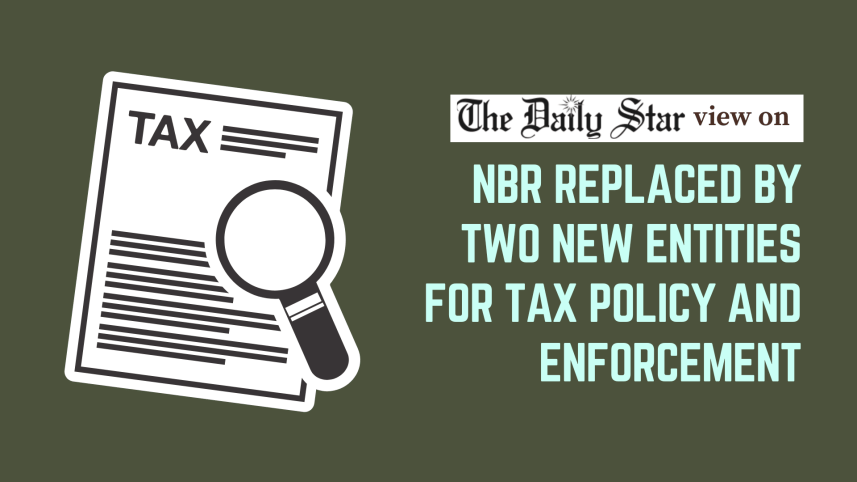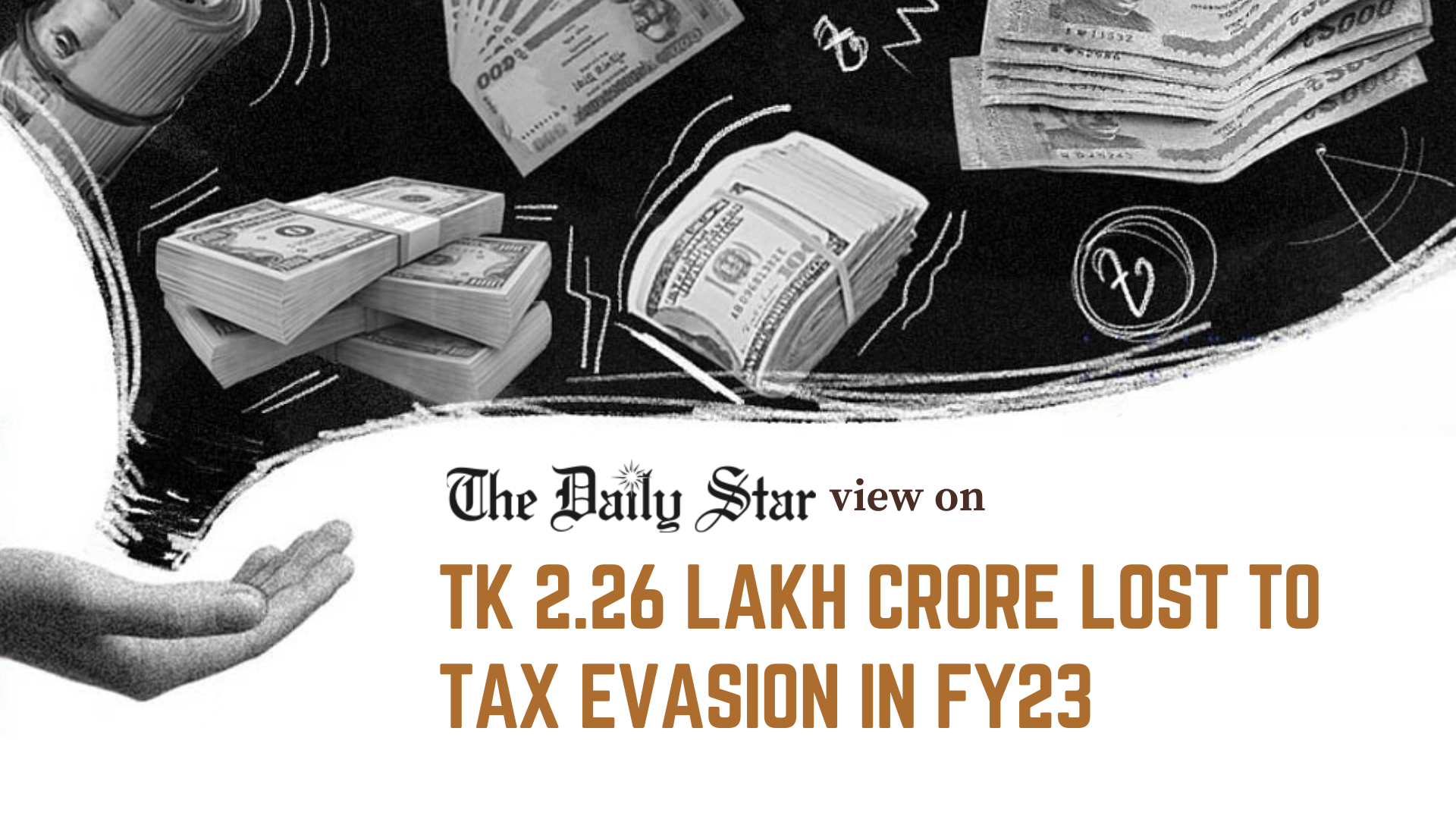Splitting the NBR is a timely step

On Monday, the government introduced a significant reform measure: dissolving the National Board of Revenue (NBR) to replace it with two new agencies. The goal is to separate the tax policymaking and implementation processes, in line with a key conditionality of the International Monetary Fund (IMF) for the $4.7 billion loan deal. We agree with experts that this is a "bold" and "timely" move that can help modernise our tax system.
By dissolving the NBR along with the Internal Resources Division (IRD) through an ordinance, the government is paving the way for the Revenue Policy Division and Revenue Management Division. The first will be tasked with designing our tax policy framework, formulating tax laws, determining various rates, and overseeing the coordination of international tax treaties and trade-related tariffs. The second, on the other hand, will be responsible for tax administration, compliance, audit, and enforcement of income tax, VAT, customs, and other taxes and duties. The separation of duties is meant to make the tax system more efficient and boost overall revenue earnings. Until now, the NBR has been in charge of all these tasks—both policymaking and policy enforcement—something that has been criticised for creating an overlap of functions leading to poor performance and coordination.
The separation of duties is meant to make the tax system more efficient and boost overall revenue earnings. Until now, the NBR has been in charge of all these tasks—both policymaking and policy enforcement—something that has been criticised for creating an overlap of functions leading to poor performance and coordination.
Given that Bangladesh has one of the lowest tax-GDP ratios in Asia (around 7.4 percent), restructuring the country's tax authority has been long overdue. The NBR has consistently failed to ensure effective resource mobilisation, increase revenue generation through direct taxes, and plug loopholes to prevent tax evasion, among other things. Moreover, in its mission to meet revenue collection targets, it has often ended up enforcing policies that created unjust pressure on taxpayers and businesses. Under the new system, we expect to see a shift away from this state of affairs.
Merely overhauling the structure, however, will not bear the desired results if the underlying problems are not addressed. As experts have said time and again, the government should reduce its overreliance on indirect taxes and expand the tax base to improve our tax-GDP ratio. Tax exemptions must also be reconsidered and allowed more conservatively, and corrupt practices in tax collection must be stopped. The entire system must be designed in a way that eligible taxpayers feel encouraged and are able to pay taxes without hassle.
Merely overhauling the structure, however, will not bear the desired results if the underlying problems are not addressed. As experts have said time and again, the government should reduce its overreliance on indirect taxes and expand the tax base to improve our tax-GDP ratio. Tax exemptions must also be reconsidered and allowed more conservatively, and corrupt practices in tax collection must be stopped. The entire system must be designed in a way that eligible taxpayers feel encouraged and are able to pay taxes without hassle.
Of course, the latest decision is not without contention. NBR officers and staff members have been protesting against the move, arguing that the new ordinance sidelines experienced tax professionals. We believe this can be sorted out through dialogue and necessary readjustments. But the ongoing overhaul must be followed through, because it is in line with international best practices and, if done right, will improve tax governance and transparency.



 For all latest news, follow The Daily Star's Google News channel.
For all latest news, follow The Daily Star's Google News channel. 

Comments